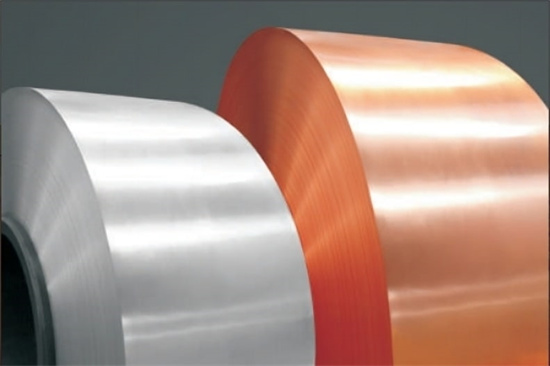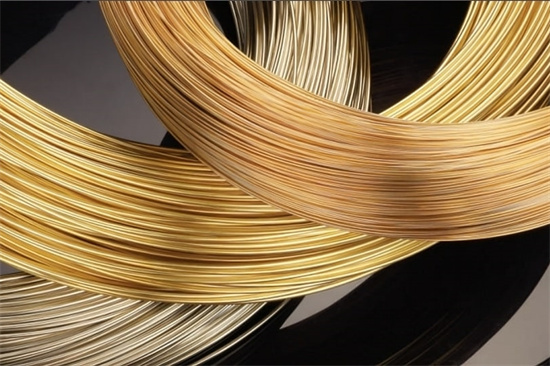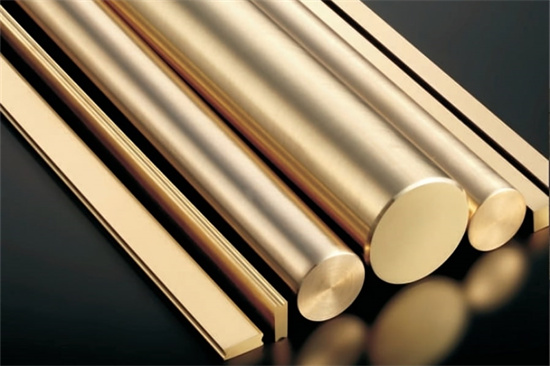


CuZn39Pb0.5: Discover the Versatility of This High-Precision Brass
Low MOQ
Provide low minimum order quantity to meet different needs.
OEM & ODM
Provide customized products and design services to meet unique customer needs.
Adequate Stock
Ensure fast order processing and provide reliable and efficient service.
Customer Satisfaction
Provide high quality products with customer satisfaction at the core.
share this article
Table of Contents
When you’re looking for a brass alloy that offers excellent machinability, strength, and corrosion resistance, CuZn39Pb0.5 is an outstanding choice. This alloy, often referred to as a free-machining brass, has a small amount of lead, which enhances its cutting properties, making it extremely popular in industries where precision and ease of machining are critical.
But what exactly is CuZn39Pb0.5, and why is it so widely used? How does it compare to other brass alloys in terms of performance, applications, and cost-effectiveness? In this guide, we’ll dive deep into the composition, properties, and applications of CuZn39Pb0.5, helping you understand why it’s a preferred material in various industries.
We’ll also explore its pros and cons, provide pricing and supplier details, and answer some of the most frequently asked questions about this high-performance alloy. By the end of this article, you’ll have a comprehensive understanding of CuZn39Pb0.5 and how it can be used to optimize your projects.
Overview
CuZn39Pb0.5 is a brass alloy that consists primarily of copper (Cu) and zinc (Zn), with 0.5% lead (Pb) added to improve its machinability. This alloy is known for its free-cutting properties, which make it ideal for high-speed machining processes, such as automatic lathing and CNC machining. The small amount of lead acts as a lubricant during machining, reducing tool wear and allowing for clean, sharp cuts.
CuZn39Pb0.5 is often used in the production of precision components where dimensional accuracy is critical. It also offers moderate corrosion resistance, making it suitable for both indoor and outdoor applications, although it performs best in non-aggressive environments.
Key Features :
- Exceptional machinability: The lead content enhances the alloy’s ability to be cut and shaped with ease, making it suitable for high-speed manufacturing.
- Corrosion resistance: While not as corrosion-resistant as some other brass alloys, CuZn39Pb0.5 holds up well in non-aggressive atmospheres.
- Good strength-to-weight ratio: The alloy offers moderate strength while remaining relatively light, making it ideal for components that need to be strong but not overly heavy.
- Cost-effective: CuZn39Pb0.5 provides a cost-effective solution for applications requiring high machinability without compromising too much on performance.
Composition and Properties
Understanding the chemical composition and mechanical properties of CuZn39Pb0.5 is essential for selecting the right material for your project. Below, we break down its composition and explore how each element contributes to the alloy’s overall performance.
Chemical Composition
| Element | Percentage (%) |
|---|---|
| Copper (Cu) | 59 – 61 |
| Zinc (Zn) | 38 – 40 |
| Lead (Pb) | 0.4 – 0.6 |
| Iron (Fe) | ≤ 0.1 |
| Other Elements | Trace amounts |
The copper and zinc content give CuZn39Pb0.5 its strength and formability, while the small amount of lead improves its machinability.
Mechanical and Physical Properties
| Property | Value |
|---|---|
| Tensile Strength | 350 – 450 MPa |
| Yield Strength | 150 – 250 MPa |
| Elongation | 25 – 35% |
| Density | 8.4 g/cm³ |
| Hardness | 80 – 110 HB |
| Thermal Conductivity | 110 W/m·K |
| Electrical Conductivity | 26% IACS |
| Melting Point | 890 – 920°C |
Key Characteristics :
- Machinability: CuZn39Pb0.5’s lead content gives it exceptional free-cutting properties, making it one of the most machinable brass alloys available.
- Corrosion Resistance: While the alloy performs well in non-aggressive environments, it may not be suitable for marine or highly corrosive conditions.
- Strength and Ductility: The combination of copper and zinc provides good mechanical strength and ductility, allowing for easy forming and shaping during manufacturing.
Applications
Due to its excellent machinability and fairly good corrosion resistance, CuZn39Pb0.5 is used in a wide range of industries. Below are some common applications where this brass alloy shines.
Common Applications
| Industry | Typical Applications |
|---|---|
| Automotive | Precision components, connectors, bushings |
| Plumbing | Faucets, fittings, valve bodies, couplings |
| Machining | Gears, fasteners, machine parts |
| Electrical | Terminals, connectors, switchgear components |
| Construction | Architectural hardware, decorative fittings |
| Aerospace | Non-critical components, hydraulic fittings |
Why CuZn39Pb0.5 is Ideal for These Applications
- Automotive: CuZn39Pb0.5’s strength and machinability make it a go-to material for producing precision components that require tight tolerances and high reliability.
- Plumbing: The alloy’s corrosion resistance and ease of machining make it perfect for fittings, valve bodies, and couplings in indoor plumbing systems.
- Machining: Thanks to its free-cutting properties, CuZn39Pb0.5 is ideal for producing gears, fasteners, and other machine parts that need to be manufactured quickly and efficiently.
- Electrical: Although not as conductive as pure copper, CuZn39Pb0.5’s moderate electrical conductivity makes it a good choice for terminals, connectors, and switchgear components.
- Construction: The alloy’s aesthetic appeal combined with its strength makes it perfect for architectural hardware and decorative fittings.
- Aerospace: While CuZn39Pb0.5 may not be suitable for critical aerospace components, it finds use in hydraulic fittings and other non-critical parts where machinability is a key factor.
Specifications, Sizes, and Standards
CuZn39Pb0.5 is available in various forms, sizes, and standards to meet the specific requirements of different industries. Below is an overview of the most common forms and specifications for this alloy.
Common Standards and Specifications
| Specification | Description |
|---|---|
| ASTM B16 | Standard for free-cutting brass rod, bar, and shapes |
| EN 12164 | European standard for copper and copper alloys |
| DIN 17660 | German standard for wrought copper alloys |
| JIS H3250 | Japanese standard for brass rods |
Available Sizes and Forms
| Form | Size Range |
|---|---|
| Rods | Diameter: 5 mm to 150 mm |
| Sheets/Plates | Thickness: 0.5 mm to 50 mm |
| Tubes | Diameter: 6 mm to 100 mm |
| Wires | Diameter: 0.5 mm to 10 mm |
Most suppliers offer custom-cut sizes to meet specific project needs, helping manufacturers minimize waste and optimize production efficiency.
Suppliers and Pricing
Pricing for CuZn39Pb0.5 can vary depending on factors like supplier location, order size, and current market prices for copper and zinc. Below is a table detailing typical pricing and a list of reliable suppliers.
Suppliers and Pricing
| Supplier | Location | Price Range (per kg) | Lead Time |
|---|---|---|---|
| ThyssenKrupp Materials | Germany | $10 – $22 | 1-3 weeks |
| Aviva Metals | USA | $12 – $24 | 2-4 weeks |
| Shanghai Metal Corp | China | $8 – $20 | 3-5 weeks |
| Smiths Metal Centres | UK | £9 – £20 | 1-2 weeks |
Factors Affecting CuZn39Pb0.5 Pricing
- Market Conditions: The price of copper and zinc fluctuates based on global supply and demand, which directly affects the cost of CuZn39Pb0.5.
- Order Quantity: Buying in large quantities often results in discounted prices, while smaller orders may incur a higher price per kilogram.
- Material Form: Sheets and custom-cut sizes typically cost more than standard rods or bars due to additional processing costs.
- Shipping and Location: Shipping fees and import/export taxes can also influence the final price, especially when ordering from international suppliers.
Advantages and Limitations
Before selecting CuZn39Pb0.5 for your project, it’s important to understand both its advantages and limitations. While this alloy offers many benefits, it’s not always the perfect solution for every application.
Advantages and Limitations
| Advantages | Limitations |
|---|---|
| Outstanding machinability: Lead content greatly enhances the alloy’s free-cutting properties, reducing tool wear and improving production speed. | Moderate corrosion resistance: CuZn39Pb0.5 performs well in non-aggressive environments but may not be suitable for marine or highly corrosive applications. |
| Good mechanical properties: The copper-zinc combination provides a good balance of strength and ductility, making it easy to form and shape. | Lower electrical conductivity: CuZn39Pb0.5’s conductivity is lower than pure copper or high-conductivity alloys, limiting its use in high-performance electrical applications. |
| Cost-effective: CuZn39Pb0.5 offers an affordable solution for high-speed machining without sacrificing too much on performance. | Lead content: While lead improves machinability, it can restrict use in applications where lead-free materials are required, such as drinking water systems. |
| Versatile applications: Used across a wide range of industries including automotive, plumbing, and machining. | Recycling challenges: The presence of lead complicates the recycling process and could raise environmental concerns. |
Comparing CuZn39Pb0.5 with Other Brass Alloys
How does CuZn39Pb0.5 compare to other brass alloys in terms of performance, properties, and cost? Below, we compare CuZn39Pb0.5 with other similar brass alloys commonly used in industry.
CuZn39Pb0.5 Compared to Other Brass Alloys
| Property | CuZn39Pb0.5 | CuZn37Pb2 | CuZn36Pb3 | CuZn40Pb2 |
|---|---|---|---|---|
| Tensile Strength | 350 – 450 MPa | 300 – 450 MPa | 280 – 430 MPa | 320 – 450 MPa |
| Machinability | Excellent | Excellent | Very Good | Very Good |
| Corrosion Resistance | Good | Good | Moderate | Good |
| Electrical Conductivity | 26% IACS | 28% IACS | 25% IACS | 22% IACS |
| Formability | Good | Good | Very Good | Good |
Key Comparisons:
- CuZn39Pb0.5 vs. CuZn37Pb2: Both alloys have excellent machinability, but CuZn37Pb2 offers slightly better corrosion resistance due to its higher lead content.
- CuZn39Pb0.5 vs. CuZn36Pb3: CuZn36Pb3 has slightly better formability, but CuZn39Pb0.5 excels in machinability, making it ideal for precision parts that require fast, efficient production.
- CuZn39Pb0.5 vs. CuZn40Pb2: CuZn40Pb2 offers marginally higher tensile strength, but CuZn39Pb0.5 is generally easier to machine, making it a better choice for high-speed applications.
Frequently Asked Questions (FAQ)
To help you better understand CuZn39Pb0.5, here are some of the most frequently asked questions about its properties, performance, and uses.
| Question | Answer |
|---|---|
| What is it used for? | It is widely used in automotive, plumbing, and machining industries, thanks to its machinability and corrosion resistance. |
| Why is lead added to CuZn39Pb0.5? | Lead improves the machinability of CuZn39Pb0.5 by acting as a lubricant during cutting, reducing tool wear and allowing for cleaner cuts. |
| Is it corrosion-resistant? | Yes, it offers good corrosion resistance in non-aggressive environments, but it may not be suitable for highly corrosive conditions. |
| Can it be used in drinking water systems? | Due to its lead content, it is generally not recommended for drinking water systems. |
| What is the tensile strength of CuZn39Pb0.5? | It has a tensile strength ranging from 350 to 450 MPa, depending on the form and processing method. |
| Is it easy to machine? | Yes, the lead content makes CuZn39Pb0.5 highly machinable, making it ideal for high-speed machining and precision parts. |
Conclusion
It is a versatile and high-performance brass alloy that stands out for its exceptional machinability, good corrosion resistance, and mechanical properties. Whether you’re working in the automotive, plumbing, or machining sectors, it offers a cost-effective solution that combines precision with durability.
While the alloy may not be suitable for marine environments or applications requiring lead-free materials, it excels in areas where high-speed machining and tight tolerances are critical. Its combination of strength, ductility, and free-cutting properties makes it a favorite among manufacturers who need to produce precision parts quickly and efficiently.
By understanding the composition, properties, and applications of CuZn39Pb0.5, you can confidently choose this alloy for your next project, knowing that it will deliver the performance, efficiency, and reliability you need.
Maybe you want to know more about our products, please contact us
Get Latest Price
About Met3DP
Product Category
HOT SALE
CONTACT US
Any questions? Send us message now! We’ll serve your request with a whole team after receiving your message.

Metal Powders for 3D Printing and Additive Manufacturing
COMPANY
PRODUCT
cONTACT INFO
- Qingdao City, Shandong, China
- [email protected]
- [email protected]
- +86 19116340731








